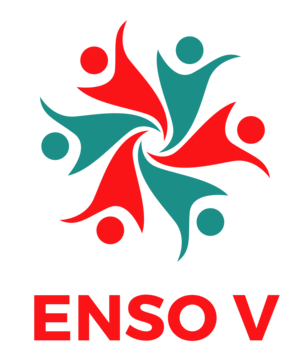About the conference
ENSO V is an interdisciplinary conference concerning social ontology. Possible topics include but are not limited to
Social reality consists, ostensibly, of a diverse range of entities and phenomena, such as social events (e.g. elections), social properties (e.g. being a professor), social facts (e.g. Sweden’s being a member of the EU) and social objects (e.g. corporations). Can we account for their reality and persistence in terms of entities and phenomena from other ontological categories or levels of reality, or are they best conceptualized as sui generis entities? What kinds of concepts – e.g. grounding, constitution, emergence, supervenience, reduction, etc. – are likely to be fruitful analytical tools in the endeavor of uncovering the metaphysics of social reality?
Human actions are, more often than not, interlinked. People frequently coordinate their actions, but just as often people aim for stronger forms of cooperation seeking to act together in order to accomplish tasks they could not solve in isolation. Many forms of such coordinated and cooperative activities involve the pooling of ideas, reasons, preferences and values among participants. However, these deliberative and epistemic aspects of joint and collective action raise well-known theoretical issues and practical difficulties. Among others, how successful are groups in aggregating their values and preferences? What are the forms and mechanisms of team reasoning? What is the relationship between collective intentionality and group rationality? We invite submission of abstracts relevant to these questions broadly conceived.
Individuals may arguably jointly attend to an object, share emotions, intend to act together, share beliefs about the world, and collectively endorse common values. But in which sense can attitudes be shared or collective? Can such attitudes be ascribed to groups as such or are there other ways of distinguishing collective from individual intentionality? Which conceptual resources are required for collective acting and intending? How is it related to self-awareness, and to social cognition? The nature of collective intentionality and agency is essential to our understanding of the capacities and limitations of groups and institutions, and for questions about their moral and legal status.
Moral claims often concern groups of agents or organisations such as states or corporations whose activities centrally involve such groups. These “collective” entities are said to have obligations and are held responsible for actions and outcomes. But can they really be moral agents? If not, can they really have obligations or bear responsibilities? If they can, what is the relation between their obligations and responsibility and that of members of the groups? Similar questions arise in the legal realm, where aspects of complicity in collective wrongdoing and duties to redress collectively brought-about harms have received particular attention.
Conventions and conventional understandings play a normative role in society, regulating interactions and helping people to coordinate their behavior. But by doing so they also inevitably privilege, whether explicitly or effectively, certain social positions above others, e.g., through constructions of normality. These issues are often addressed in gender studies, critical race theory, disability studies, and other approaches, as well in recent philosophical discussions about epistemic injustice, but can also be addressed through an understanding of the ontology of conventions, norms, and power.
Collective entities and phenomena in our societies exist as solutions to human needs. But both human needs, and their solutions, are dependent on biologically evolved substrates. Sociality as such is an integrated part of most life forms. Collectivity in a comparative perspective places human sociality in an evolutionary context where similarities and differences between species guide theories about function and deep history of human collectivity, and what mechanisms are needed, or involved, for specific types of collectivity. Such comparisons need not be limited to animals, but also other forms of nonhumans, such as robots with artificial intelligence, can contribute to modelling the causes of human collectivity.

